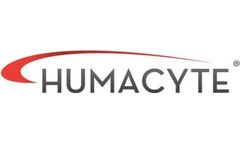Cardiovascular Event Articles & Analysis: Older
8 articles found
Hormone therapy also carries potential risks, such as a possible increased risk of cardiovascular events, breast cancer, deep vein thrombosis, pulmonary embolism, and gallbladder disease.Drugs That Promote Bone Formation(1) Parathyroid HormoneParathyroid hormone (PTH) as a bone formation promoter can effectively promote bone reconstruction, increase bone density, ...
For patients with previous cardiovascular disease, the risk of myocardial infarction was also significantly reduced. 3. ...
In order to improve public health and reduce mortality, it is urgent to effectively manage blood glucose and improve the risk factors of cardiovascular diseases, but the current situation of diabetes management is not optimistic. Diabetes and cardiovascular diseases are the leading causes of death from chronic noncommunicable diseases in middle-aged and older ...
Purpose Dysregulations of key signaling pathways in metabolic syndrome are multifactorial, eventually leading to cardiovascular events. Hyperglycemia in conjunction with dyslipidemia induces insulin resistance and provokes release of proinflammatory cytokines resulting in chronic inflammation, accelerated lipid peroxidation with further development of ...
However, synthetic grafts have higher infection and stenosis rates than AV fistulas.1e6 Loss of primary unassisted patency in ePTFE grafts occurs in up to 75% of patients by one year,6 and long term patency rates are approximately 27% at five years.7 Graft and fistula failure can force patients to rely on central venous catheters, which are associated with higher rates of infection, all cause ...
In patients with DM and CKD, MAC is a powerful risk factor for cardiovascular events and death. Furthermore, MAC and an elevated ankle-brachial index, secondary to noncompressible ankle arteries as a result of MAC, are correlated with clinical symptoms of CLTI, such as foot ulcer, gangrene, and amputations.5 ARE SAD AND MAC TWO FACES OF THE SAME COIN? ...
Annotations Acute kidney injury (AKI) is recognized as a potential risk factor for future cardiovascular events, especially heart failure. Up to 60% of patients with severe AKI who are admitted to an intensive care unit (ICU) die; the long-term risk of death associated with AKI is also increased. ...
Abstract Intervention with drugs to reduce Low Density Lipoprotein-cholesterol (LDL-C) has proven to decrease the risk of subsequent cardiovascular events, including mortality. Our goal is to develop novel, small molecule, LDL-C lowering drugs by targeting the Low Density Lipoprotein Receptor (LDLR) degradation pathway, which is modulated by the protease ...








